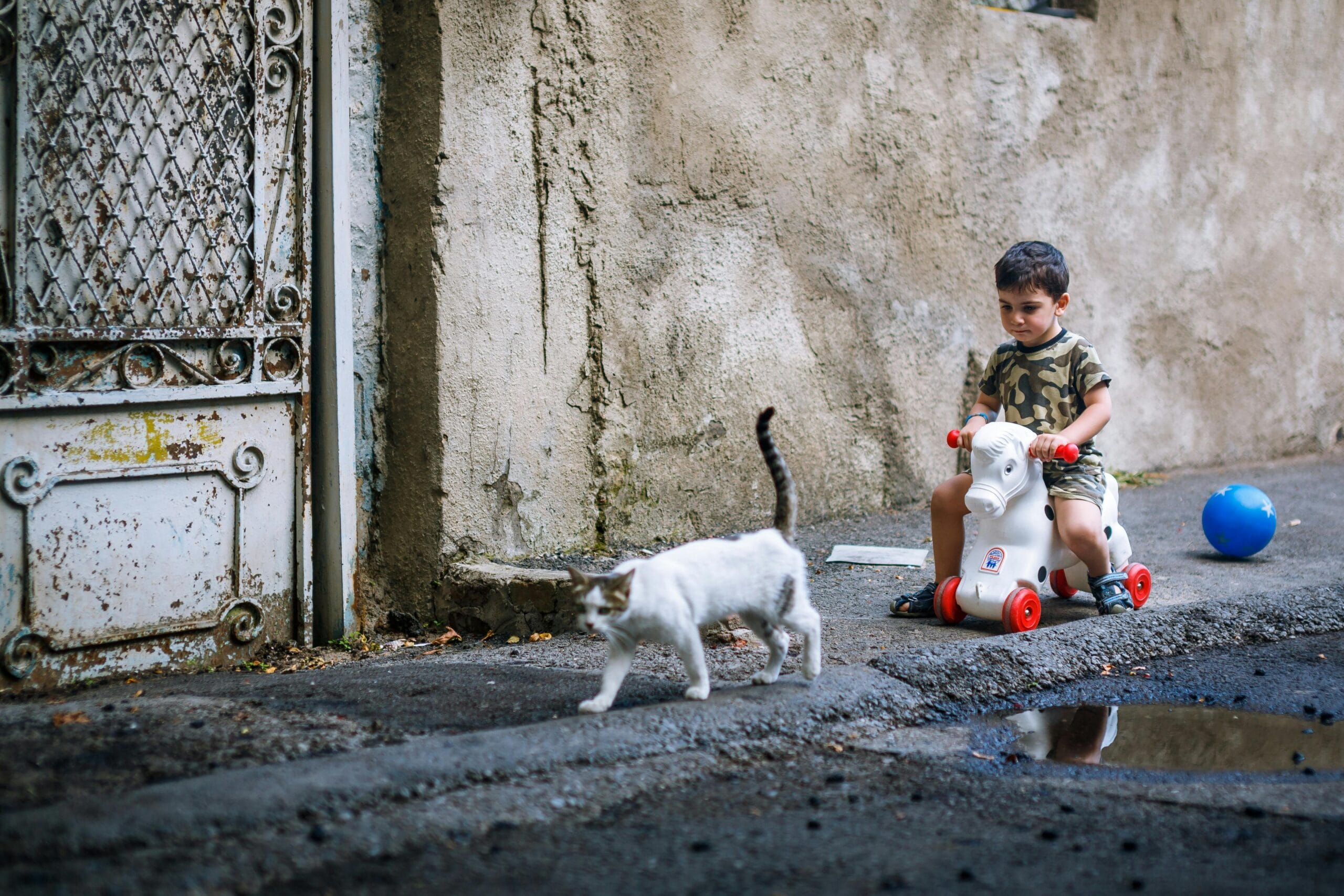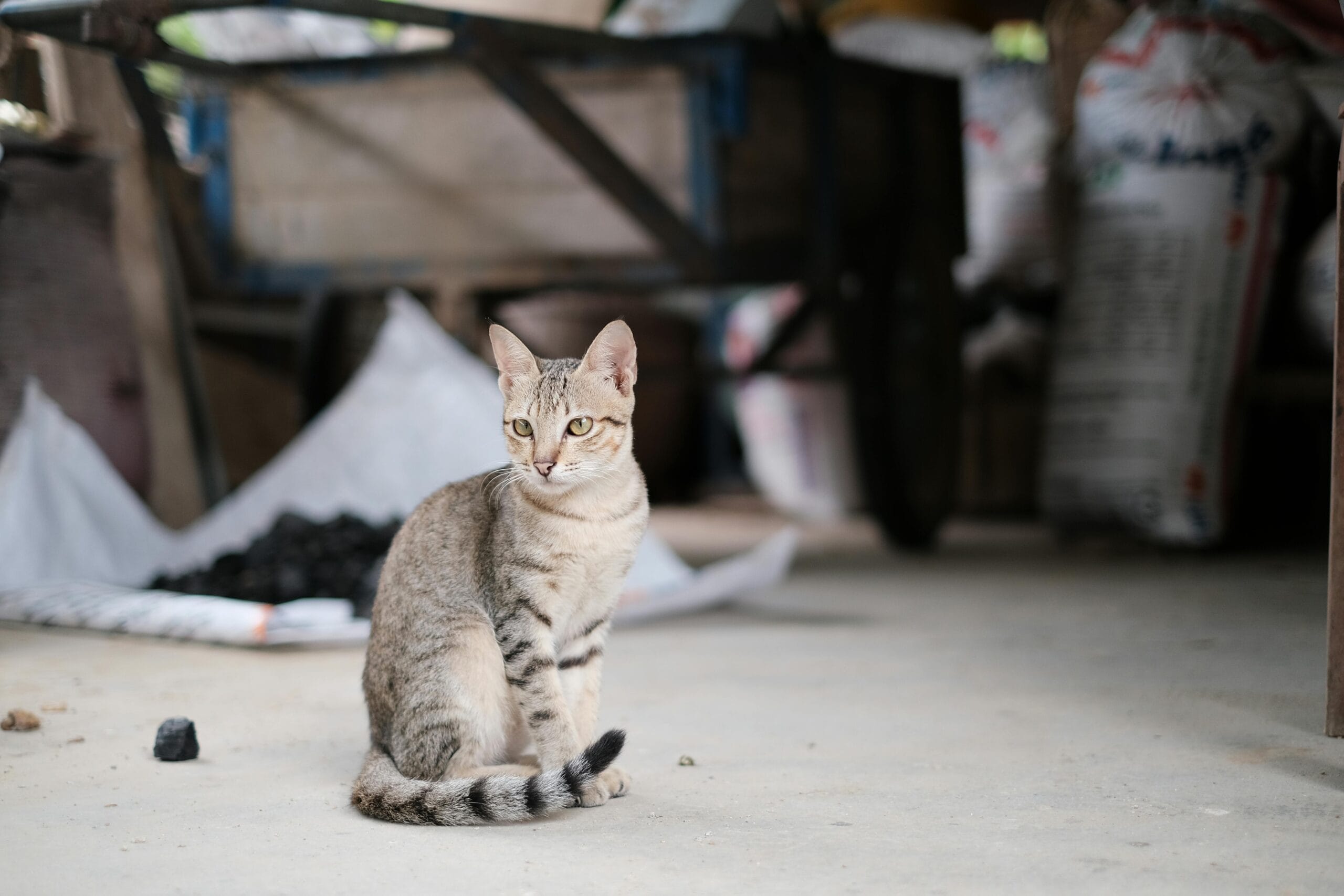Can Cats Eat Ice Cream? Discover the truth about cat ice cream toxicity & whether ice cream is bad for cats. Find out the risks & what to do if your cat sneaks a lick! Learn now!
Can Cats Eat Ice Cream? A Comprehensive Guide to Cat Ice Cream Toxicity
The question, “Can cats eat ice cream?” is a common one among cat owners, especially during those hot summer months when a cool treat sounds appealing. While the sight of your feline friend eyeing your ice cream cone might be endearing, the truth is that ice cream is generally not a suitable treat for cats. Understanding the potential risks associated with cat ice cream toxicity is crucial for ensuring your cat’s health and well-being. This article will delve into the reasons why ice cream is harmful to cats, explore the potential dangers, and offer safer alternatives to satisfy your kitty’s cravings.
Is Ice Cream Bad for Cats? Understanding the Risks
The answer is a resounding yes, ice cream is generally bad for cats. Several factors contribute to this:
High Lactose Content:
Most ice creams contain lactose, a sugar found in milk. Many adult cats lack the enzyme lactase, needed to digest lactose properly. Consuming lactose can lead to digestive upset, including diarrhea, vomiting, gas, and stomach cramps. The severity of these symptoms can vary depending on the amount of ice cream consumed and your cat’s individual sensitivity. Similar digestive issues can occur if your cat ingests other dairy products; for instance, you may want to check our article about whether cats can eat sardines due to their high fat content.
High Sugar Content:
Ice cream is typically packed with sugar, which is detrimental to a cat’s health. Excessive sugar intake can lead to weight gain, obesity, and an increased risk of developing diabetes. Just as we need to be mindful of the sugar content in our own diets, we need to protect our feline friends from these same risks. This is similar to the concerns about feeding cats other sugary human foods such as cherries. You can read more about that in our article: Can Cats Have Cherries?
High Fat Content:
Many ice cream varieties are high in fat, which can contribute to pancreatitis in cats – a serious and potentially life-threatening inflammation of the pancreas. This is particularly true for ice creams that contain cream or other high-fat ingredients. Considering the risks associated with high-fat foods, it is essential to be careful with any treats you are offering your cat. This is also a good point to think about if you’re considering feeding your cat something like lettuce. See this article about whether cats can have lettuce.
Artificial Sweeteners and Additives:
Some ice creams contain artificial sweeteners, such as xylitol, which is extremely toxic to cats. Even small amounts of xylitol can cause a rapid drop in blood sugar, liver failure, and even death. Similarly, other artificial additives and flavors in ice cream can be potentially harmful to your cat’s digestive system and overall health. If you are concerned about your cat’s diet and the potential for diarrhea after canned cat food, you may find this article helpful: Does Canned Cat Food Cause Diarrhea?
Cat Ice Cream Toxicity: Symptoms to Watch For
If your cat accidentally ingests ice cream, monitor them closely for any signs of distress. Symptoms of cat ice cream toxicity can range from mild to severe and may include:
- Vomiting
- Diarrhea
- Gas
- Abdominal pain
- Lethargy
- Loss of appetite
- Dehydration
In severe cases, especially if xylitol is involved, symptoms can escalate to more serious complications, including seizures and liver failure. If you suspect your cat has ingested a significant amount of ice cream or is showing any concerning symptoms, contact your veterinarian immediately. Early intervention is crucial for minimizing the risks associated with ice cream toxicity.
Safer Alternatives for Your Feline Friend
While ice cream is a definite no-no, there are many safer alternatives to keep your cat cool and happy during warmer months. Consider offering them:
- Cat-specific ice cream or frozen treats: Many pet stores now offer commercially available ice cream or frozen treats formulated specifically for cats, using ingredients that are safe and digestible.
- Plain, unsweetened yogurt (in moderation): Some cats tolerate small amounts of plain, unsweetened yogurt, but introduce it gradually and watch for any adverse reactions. Note that this does not apply to cats with lactose intolerance.
- Water: Providing plenty of fresh, cool water is essential, especially during hot weather. It is the best way to keep your cat hydrated and prevent heatstroke.
- Frozen tuna broth cubes: Make your own cat-friendly ice cubes by freezing plain, low-sodium tuna broth in an ice cube tray.
Remember to always supervise your cat when offering them any treats, even those specifically designed for feline consumption. This will give you peace of mind and allow you to intervene if needed.
Additional Resources
For more in-depth information on cat nutrition and potential food hazards, consult these reputable sources:
The American Society for the Prevention of Cruelty to Animals (ASPCA): https://www.aspca.org/ (This link provides information on toxic substances for pets)
The Veterinary Information Network (VIN): https://www.vin.com/ (This link provides resources for veterinary professionals but contains valuable information for pet owners)
Can Cats Eat Grapes? A Related Concern
Just as ice cream poses a risk, other human foods can also be harmful to cats. Grapes are a prime example. To learn more about the dangers of grapes for cats, check out our comprehensive article on can cats eat grapes.
Conclusion: Prioritize Your Cat’s Health
The bottom line is that can cats eat ice cream? No, they shouldn’t. The risks associated with cat ice cream toxicity significantly outweigh any potential benefits. By understanding the dangers of ice cream and choosing safer alternatives, you can ensure your beloved feline companion remains happy, healthy, and free from the potential harms of this delicious, but inappropriate, human treat.
Share Your Experience!
Have you ever had an experience with your cat and ice cream or other human foods? Share your stories and tips in the comments below! Let’s help each other keep our feline friends safe and healthy by learning from our collective experiences! Use relevant keywords like “Can Cats Eat Ice Cream“, “Is Ice Cream Bad for Cats“, or “Cat Ice Cream Toxicity” in your comments.

Frequently Asked Questions: Can Cats Eat Ice Cream?
- Can cats eat ice cream?
- No, cats should not eat ice cream. While a tiny lick might not cause immediate harm, it’s best to avoid it entirely due to the potential for Cat Ice Cream Toxicity.
- Is ice cream bad for cats?
- Yes, ice cream is generally bad for cats. It’s high in sugar, fat, and lactose, all of which can cause digestive upset, pancreatitis, and other health problems. Is Ice Cream Bad for Cats? The answer is a resounding yes.
- What are the dangers of cats eating ice cream?
- The high sugar content in ice cream can lead to diabetes and obesity in cats. The fat can cause pancreatitis, a serious inflammation of the pancreas. Lactose intolerance can lead to diarrhea and vomiting. This contributes to potential Cat Ice Cream Toxicity.
- My cat ate a little ice cream, should I be worried?
- A small amount might not cause immediate problems, but monitor your cat for vomiting, diarrhea, or other unusual symptoms. If you’re concerned, contact your veterinarian.
- Are there any ice creams safe for cats?
- No commercially available ice cream is safe for regular consumption by cats. There are some cat-specific treats that mimic the texture of ice cream, but these are formulated without the harmful ingredients.
- What are the symptoms of ice cream poisoning in cats?
- Symptoms of Cat Ice Cream Toxicity can include vomiting, diarrhea, abdominal pain, lethargy, and dehydration. If you see these symptoms after your cat has eaten ice cream, seek veterinary attention immediately.
- Can kittens eat ice cream?
- No, kittens are even more vulnerable to the negative effects of ice cream than adult cats due to their smaller size and developing digestive systems. Avoid giving kittens ice cream at all costs.
- My cat begs for ice cream, how do I stop this?
- Consistency is key. Never give in to begging. Offer your cat appropriate cat treats instead to redirect their attention.
- Can I make homemade ice cream for my cat?
- While you could attempt to make a lactose-free, low-sugar, and low-fat ice cream for your cat, it’s best to consult your veterinarian first. There’s still a risk, and commercially available cat treats are a safer option.
- What should I do if my cat eats a large amount of ice cream?
- Contact your veterinarian immediately. A large amount of ice cream can cause serious health problems, and prompt veterinary care is crucial.

Can Cats Eat Ice Cream? A Vet’s Perspective
The short answer is: no, cats should not eat ice cream. While a tiny lick might not cause immediate harm, ice cream presents several health risks for our feline friends. The high sugar content in ice cream can lead to weight gain, diabetes, and pancreatitis. These conditions can significantly impact your cat’s quality of life and require extensive veterinary care. Furthermore, the fat content can cause digestive upset, leading to vomiting or diarrhea.
Many ice cream flavors also contain artificial sweeteners, such as xylitol, which is extremely toxic to cats. Even small amounts can cause a life-threatening drop in blood sugar and liver failure. Always check the ingredients list before even considering offering your cat a taste. If you’re concerned about your cat’s digestive health, you might want to read more about canned cat food and diarrhea.
Instead of ice cream, offer your cat safe and healthy treats. Some cats enjoy small pieces of cooked chicken or tuna (in moderation). Remember, moderation is key with all treats. Providing too many treats, even healthy ones, can still lead to weight problems. Avoid giving your cat foods that are toxic to them, like grapes or cherries. For more information, you can check out these articles: Can cats eat grapes? and Can cats have cherries?
Ice cream is not a part of a cat’s natural diet, and their digestive systems aren’t equipped to handle the ingredients efficiently. While some cats might tolerate small amounts without showing obvious signs of distress, the long-term health consequences far outweigh any momentary enjoyment. Even seemingly harmless ingredients like lettuce can cause digestive issues in some cats; read more about that here: Can cats have lettuce? Consider giving your cat a more appropriate treat or, if you are unsure, consult your veterinarian.
If your cat does accidentally ingest ice cream, monitor them closely for any signs of illness, such as vomiting, diarrhea, lethargy, or changes in appetite. If you notice any concerning symptoms, contact your veterinarian immediately. Similarly, if you’re considering providing your cat with other human foods, such as sardines, it is best to research their safety first. You might find this article helpful: Can cats eat sardines? Always prioritize your cat’s health and well-being. A healthy and happy cat is a cat that avoids human treats.
Can Cats Eat Ice Cream, Cat Ice Cream Toxicity, Is Ice Cream Bad for Cats